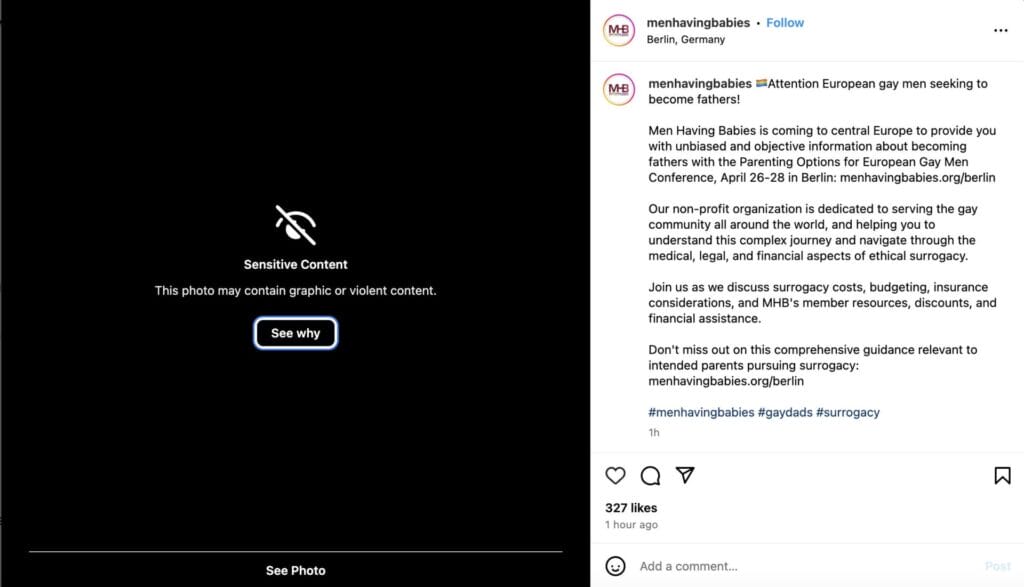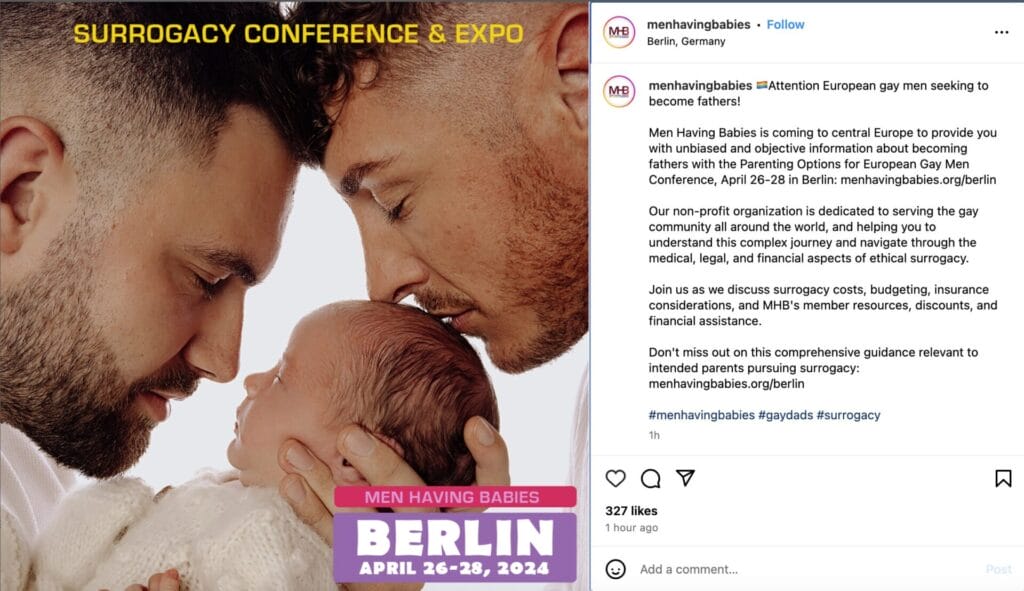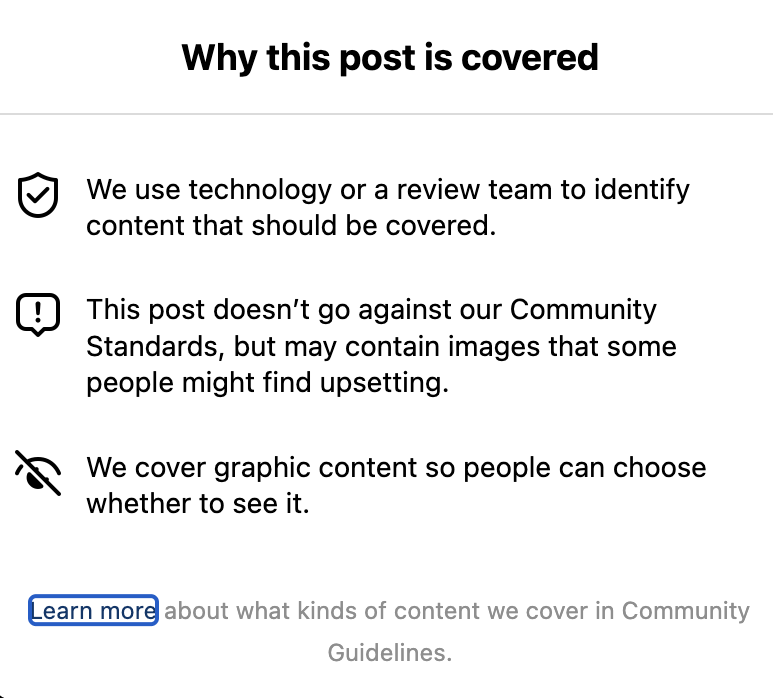LGBTQ Content Suppression Case Study: Men Having Babies (Instagram)
In March 2024, the nonprofit Men Having Babies (MHB) posted a sweet photo of two gay dads holding their newborn on its Instagram. The organization, which supports gay couples pursuing ethical surrogacy, aimed to promote its annual conference with the post. Shortly after posting, MHB discovered that Instagram had censored the content with an overlay warning that read “Sensitive Content … This photo may contain graphic or violent content.” When a user taps “See why,” the overlay reads: “This post doesn’t go against our Community Standards, but may contain images that some people might find upsetting. We cover graphic content so people can choose whether to see it.” As seen above, clearly the photo is neither graphic nor sensitive. Such instances of wrongful suppression of LGBTQ content are part of a larger, troubling trend: Research shows that LGBTQ content is disproportionately censored via removal, shadowbanning, demonetization, or “graphic content” overlays like this one. This incident is particularly upsetting in light of Meta’s failures to mitigate the vast amount of hate-fueled and violent content that researchers say Meta has allowed to proliferate across its platforms.
After escalation from GLAAD to Meta the warning label was eventually removed. Commenting on the case, GLAAD Social Media Safety Program Manager Leanna Garfield observed to PinkNews: “Graphic content overlays are a valuable tool to mitigate extreme content — That shouldn’t include something as innocuous as a photo of two fathers with their newborn.”















